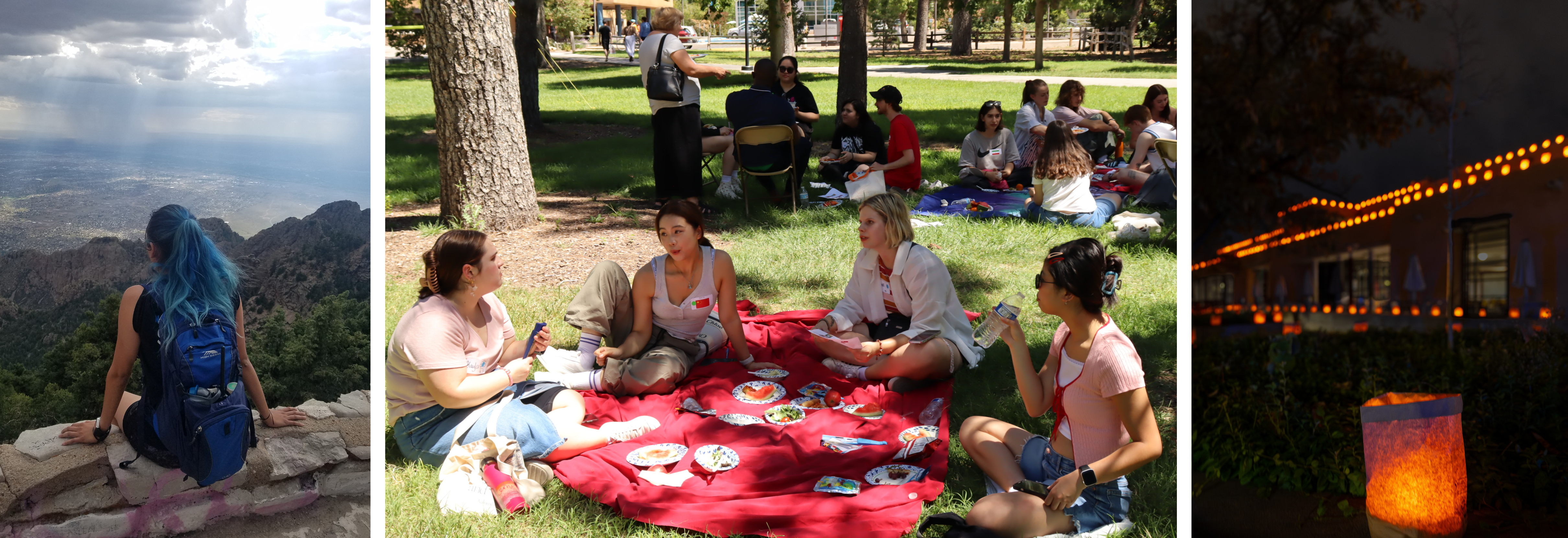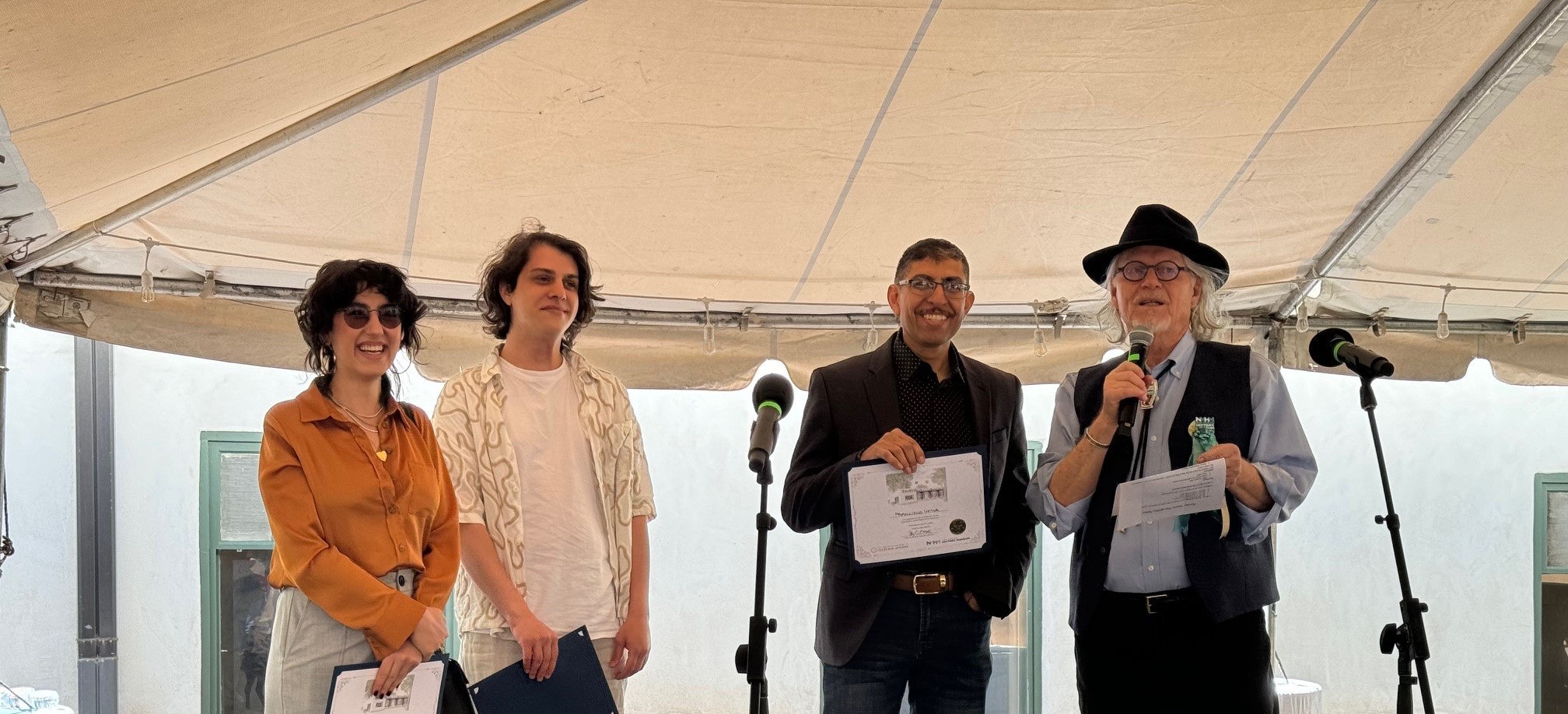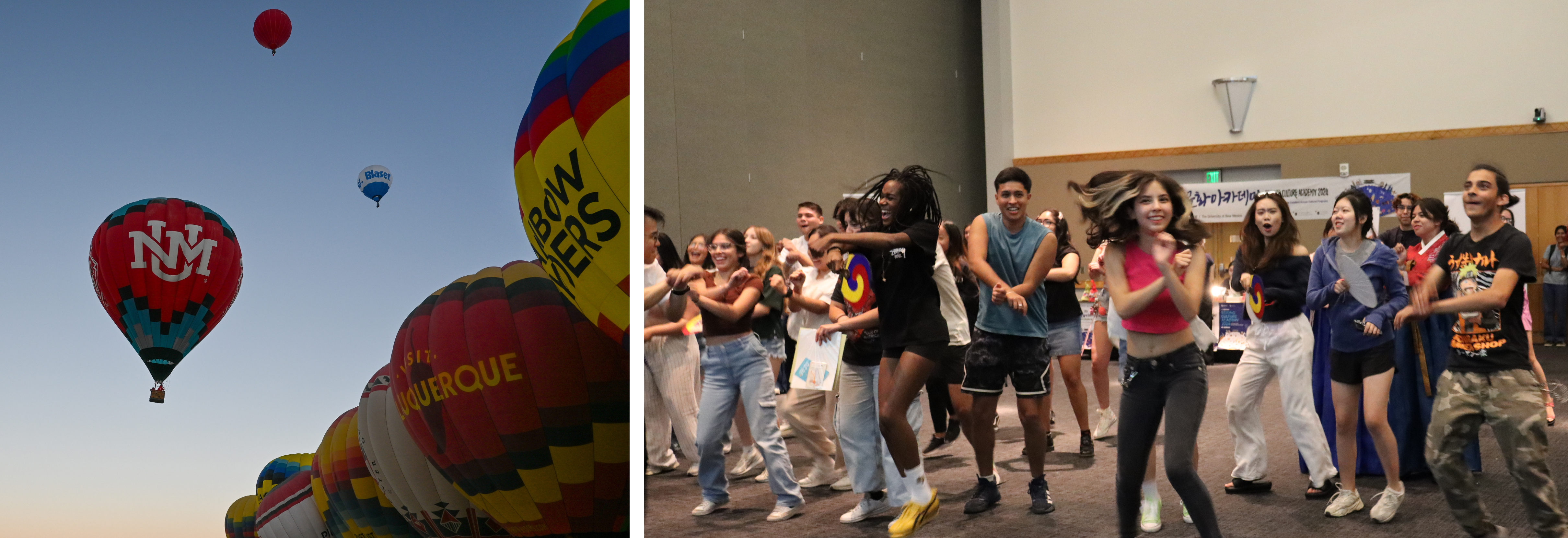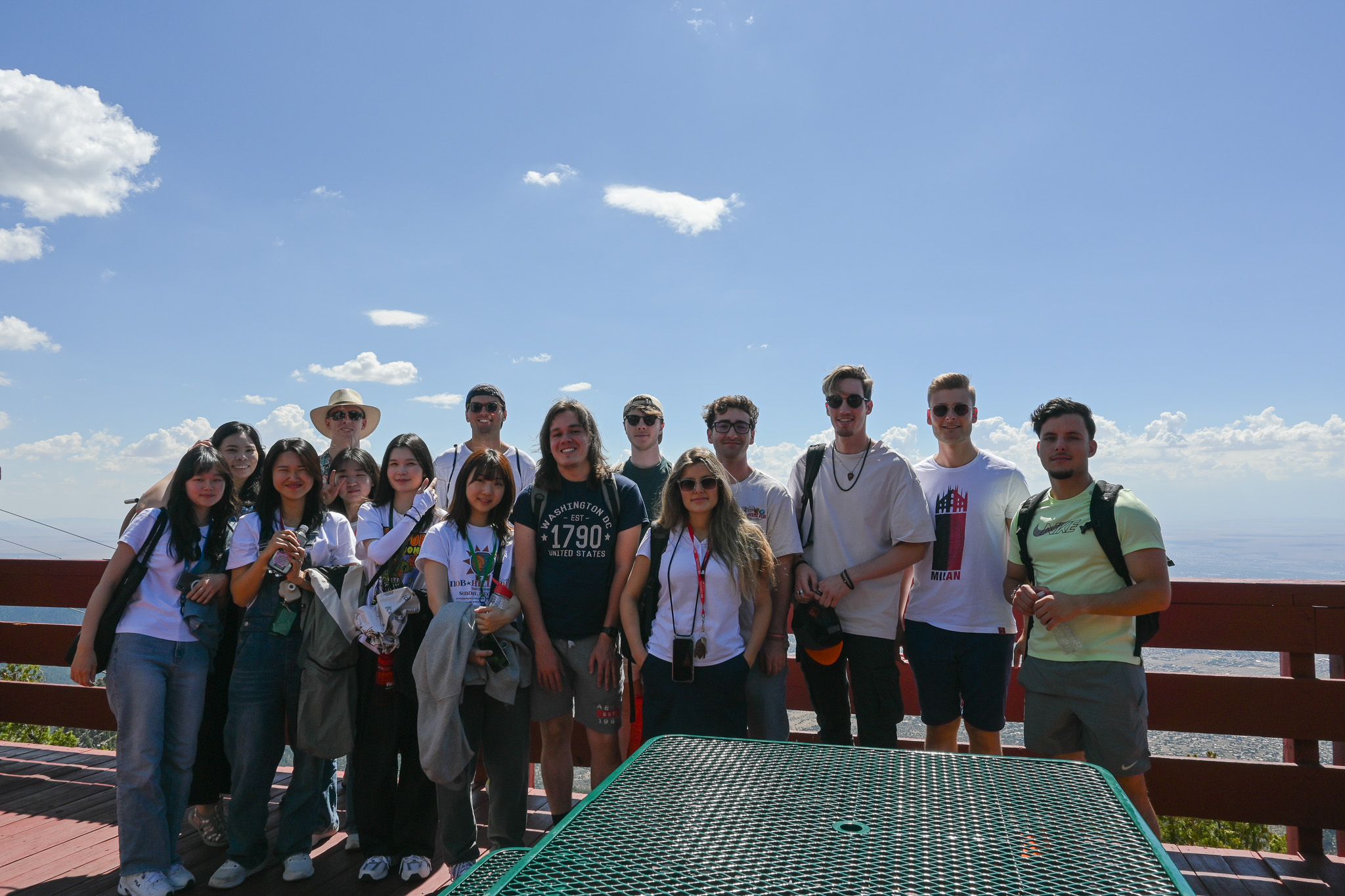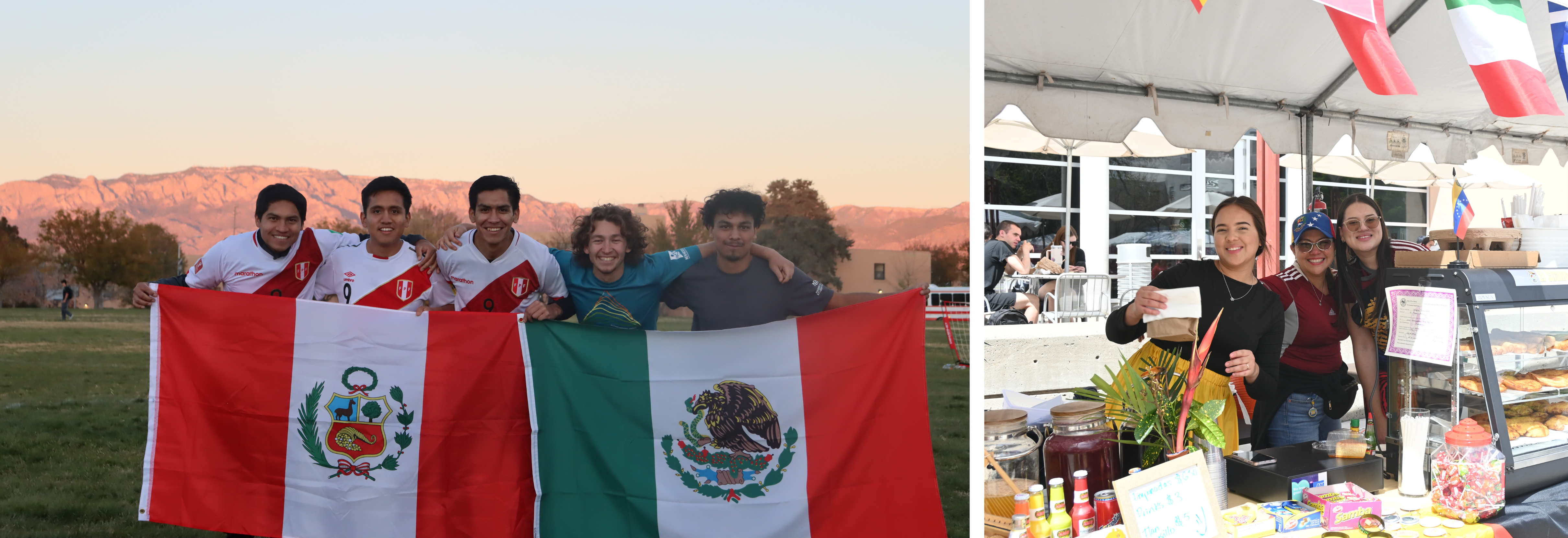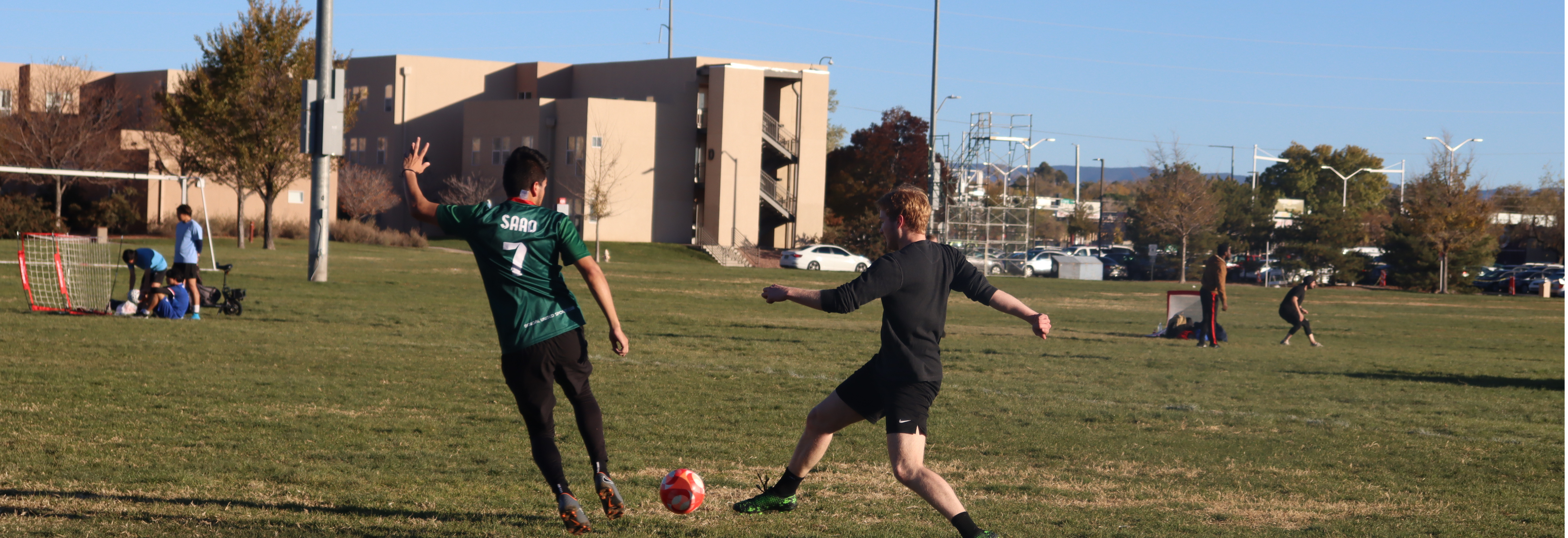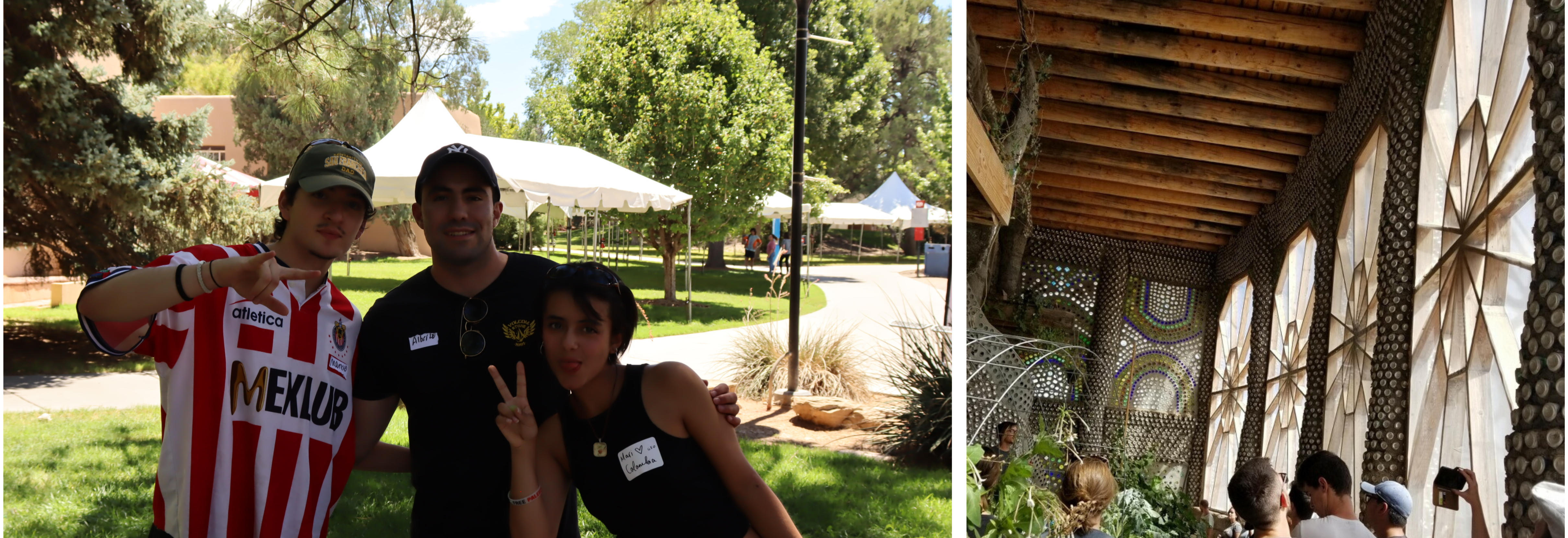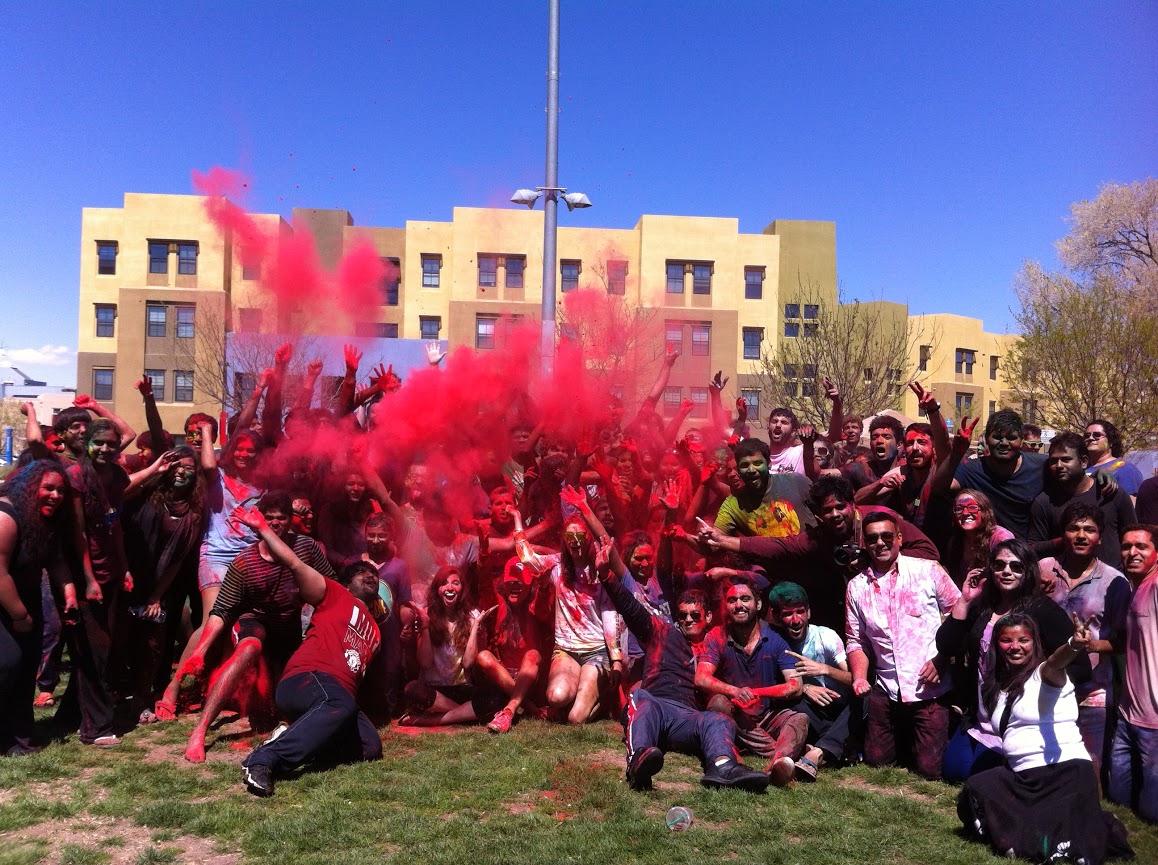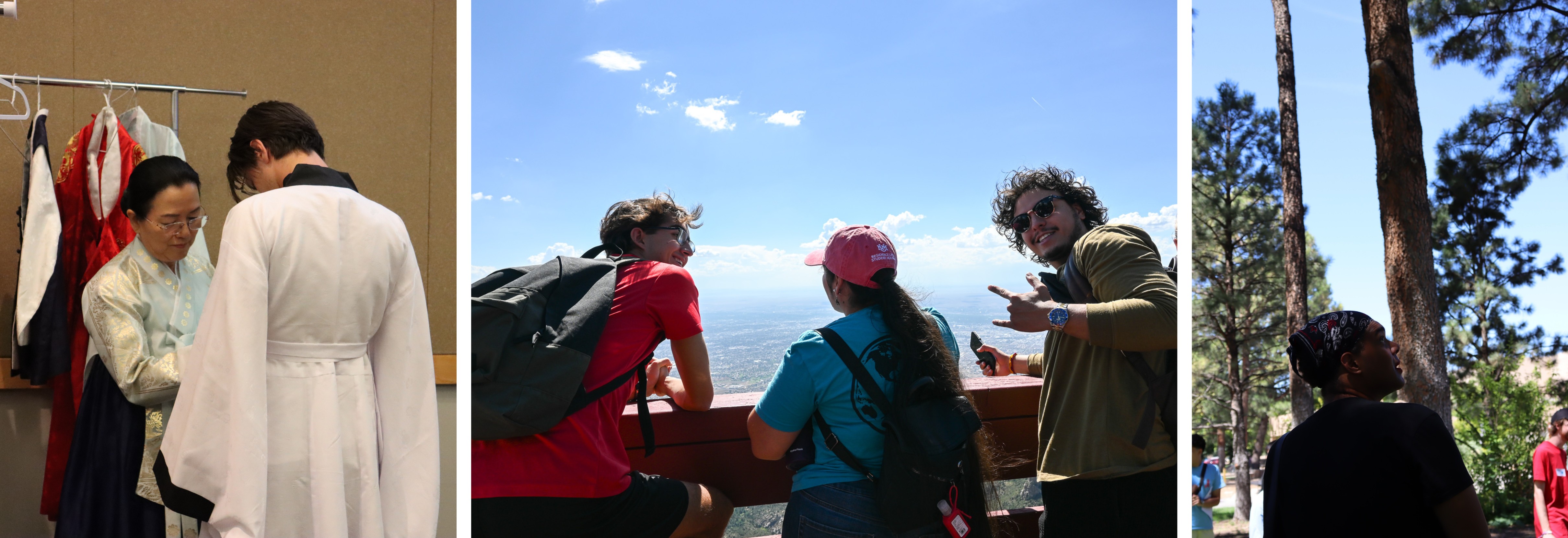Campus & Community Resources
Academic Resources
- Center for Academic Program Support (CAPS)
- The Graduate Resource Center (GRC)
- Graduate Teaching Academy
- UNM Libraries
Center for Academic Program Support (CAPS)
Center for Academic Program Support (CAPS) is a free-of-charge educational assistance program available to UNM students enrolled in undergraduate classes (numbered 100-399). The tutors at CAPS are UNM upper-division undergraduates and graduate students. Location: 3rd floor of Zimmerman Library at the top of the stairs.
The Graduate Resource Center (GRC)
The Graduate Resource Center (GRC) offers individual appointments for discussing and receiving feedback on writing and research projects. The Graduate Resource Center (GRC) offers a wide array of free academic support services to all graduate and professional students at the University of New Mexico.
Graduate Teaching Academy
Graduate Teaching Academy offered by Graduate Studies and the Center for Teaching and Learning. The Graduate Teaching Academy offers a Certificate for all UNM graduate students who are teaching (or planning to teach) college courses. Those who complete Academy training will receive a non-transcripted certificate in college teaching, which will enhance their CVs and improve their chances of placement as faculty and lecturers at colleges and universities.
UNM Libraries
The UNM Libraries offers students access to multiple resources at a number of university locations. In addition to providing access to research materials, the University Libraries provide consultation services, research help, and workshops. Make an individual appointment with (or email) your subject librarian to learn about the tools and resources you need to successfully conduct academic library research in your discipline. Subject librarians have expertise in a field and are here to help you with everything from literature reviews to identifying data sets to using scholar productivity tools like Zotero. The Library also has a Research Data Services (RDS) that provides a wide variety of services in support of effective research data planning, management, preservation, discovery and use. The Library also offers workshops on a variety of research topics (often in conjunction with the Graduate Resource Center) - see the Library’s website and/or the GRC website for event listings and provides a walk-up Help Desk in each of its branches. Find a subject Librarian: https://library.unm.edu/about/employees/index.php?sort=sub Research Data Services: https://elibrary.unm.edu/services/data.php
Academic Issues
Academic Success
Relationships: Probably very different from your home country! Student to student: Maybe more or less competitive than your home country Academic advisor: Helps plan your program of study; he/she can consult with you about academic problems and goals Teaching/Graduate assistants (TA/GAs): May teach the whole class or may just help the professorClassroom Expectations and Academic Standards
Plagiarism
Plagiarism is taking credit for someone else's work whether deliberately or unintentionally. This includes but is not limited to turning in all or part of an essay written by someone other than yourself (a friend, an Internet source, etc.) and claiming it as your own, and including information or ideas from research material without citing the source. The University of New Mexico considers plagiarism a serious form of academic dishonesty. Avoid plagiarism by carefully and correctly citing your sources whenever you use someone else's words, equations, graphics, or ideas. Appropriately citing sources brings deserved credit to the work of other writers, indicates the level and quality of research conducted, provides a scientific foundation for scholarship, builds solidarity in the academic community, and facilitates the reader's ability to validate claims and pursue independent learning. Plagiarism is considered Academic Dishonesty at the University of New Mexico. For more information on student and campus policies visit The Pathfinder – UNM Student Handbook. Plagiarism is concerned with Academic Dishonesty at the University of New Mexico. The following procedure will be followed when a student is suspected to have plagiarized. The following are considered examples of plagiarism but are not inclusive.Consequences of Plagiarism
Examples of Plagiarism
Safety
These are guidelines to follow in order to maintain the campus and personal safety while in the US and Albuquerque. While Albuquerque is a relatively safe city to live in, it is important to be aware of your surroundings and to take the following safety precautions. Emergencies: In an emergency, call 911. If you are on campus, there are also blue emergency phones. Make sure you know the locations of emergency centers near you, as well as which hospital is your insurance policy's preferred provider and where it is located. Always carry your health insurance card in your wallet. (Do not call an ambulance if it is not an emergency as it may be very costly.) Campus Safety: While the UNM campus is fairly safe, it is in an urban setting, and you should be mindful of safety. Avoid walking alone on campus after dark, especially if you are a woman. Always ask a classmate or friend to walk with you to your bike, car, apartment or dormitory. You can also take advantage of the UNM Escort Service (505.277.2241) offered by Campus Police. If you ever feel threatened, find one of the blue emergency phones located throughout campus and push the button to contact Campus Police. The phones are for emergencies only. To access UNM Campus Safety Tips, click here. UNM Lobo Alerts: LoboAlerts is the University's emergency text messaging system. As one piece of the multi-faceted, campus notification system, LoboAlerts provides safety and weather alerts, and notification of events that have the potential to threaten the University's ability to conduct regular activities. UNM Security Escort Service: The UNM Police department offers escort services to anyone needing an escort from an on-campus location to another on-campus location 24 hours, 7 days a week. We do not give off-campus escorts. Call 277-2241 for more information. Crime Stoppers: Anyone who has witnessed or has information about a crime should call State Crime Stoppers at 505-843-STOP (505-843-7867). Personal Safety: It will take you some time to become familiar with what constitutes a safe or unsafe environment in Albuquerque and the US. Always be aware of your surroundings and who is around you and walk with confidence. Always keep your bags and personal belongings with you and secure to avoid theft. If you meet someone and would like to meet them again, do not give out your address. Plan to meet with them again in a safe, public location until you get to know them better. If you have children, give them a "code word" that only someone familiar to you/them will know. UNM offers Personal Defense Classes through the Physical Education (Non-Professional) Department. Sexual Assault Awareness for International Students – EXPLANATION AND VIDEO MOVED FROM ACADEMIC ISSUES/RELATIONSHIPS SECTION Sexual Assault is a growing concern for many international students, the following video EXPLAINS Sexual Assault, the important concept of consent in the US, how you can prevent an assault from happening, and what to do if one does occur. For confidential reporting of sexual assault or to learn more about addressing sexual misconduct, consult the Lobo Respect Advocacy Center. Embed Video: https://vimeo.com/180757690
Registration Restrictions
A registration restriction is any event that prohibits you from registering for a class in your LoboWeb. This includes closed courses, courses requiring pre‐requisites, courses requiring departmental permission, courses with time conflicts, academic or financial holds, and other circumstances that prevent registration. To seek permission to register for a restricted course BEFORE the add/drop deadline you must go to the instructor or department and request that the instructor/department provide you with an override to register for the course. The instructor/department will approve an override in the database. If you have a registration hold, you have to go to the department that placed the hold to find out what you need to do before you can register. When the restriction is resolved, you can then go into your LoboWeb and register for the course as normal. For key registration deadline dates please go to the Office of the Registrar website. Click on "Semester Deadline Dates" on the left-hand side of the main page and choose the current semester. To seek permission to register for a restricted course AFTER the add/drop deadline, you must print out an Enrollment Authorization Form from the Office of the Registrar website. You must take this form to the instructor or department and request that the instructor/department provide you with an override to register for the course. If the instructor/department agrees to allow you into the class, s/he will sign Enrollment Authorization Form. You will also need a signature from the Dean of the college in which the course is located. The instructor/department will approve an override in the database. However, you will NOT be able to register for the course in your LoboWeb. You must take the completed Enrollment Authorization Form and a state-issued photo ID (passport, license, etc.) to the One-Stop Center and they will register you for the class. Note: You will be charged late fees if you add a class after the registration deadline. To drop a course BEFORE the add/drop deadline you can simply go into your LoboWeb and drop the course from your registration. No paperwork is required, and you will receive a full refund for the course. To drop a course AFTER the add/drop deadline, you can continue to simply drop a course from your registration via LoboWeb without the Dean's permission until the Drop without Permission Deadline. However, you will not receive a full refund for the cost of the course. After the deadline, you will need to seek a Dean's permission to drop a course. You must print out an Enrollment Authorization Form from the Office of the Registrar website: http://registrar.unm.edu/forms/enrlauth-latedrop-e41b.pdf. You must take this form to the course instructor and seek permission to drop the course. If the instructor agrees to drop you from the course you will also need to obtain a signature from the Dean of the school in which the class is located. You will then take the Enrollment Authorization Form to the One-Stop Center and they will drop the class from your registration record. Find registration deadlines located under “Semester Deadline Dates.”
What are registration Restrictions?
How can I register for a course that has a registration restriction BEFORE the add/drop deadline?
Where can I find the different registration deadlines?
How can I register for a course that has a registration restriction AFTER the add/drop deadline?
How do I drop a course BEFORE the add/drop deadline?
How do I drop a course AFTER the add/drop deadline?
Student Organizations
When we say “College is more than going to class” we mean it. There are over 400 Chartered Student Organizations for you to choose from when it comes to getting UNMInvolved. Chartered Student Organizations are groups that are officially recognized by the University of New Mexico. These student orgs are an opportunity for growth and leadership in a student-driven environment with the support of the university. There are 13 different categories that these groups identify with. Try the keyword search in our Student Organization List, you might be surprised to find how close your hobbies and academic interests are bundled into these dynamic groups.
Lobo Life
The Lobo Life is every experience a Lobo can have beyond being a student, that makes being a student at the University of New Mexico so special. This is for the wild animal in every Lobo. This is for those who want to make the most of their four years here. The Lobo Life was founded to create a place to showcase all of the experiences that bring us together while pushing us out of our comfort zones. It’s a community for those who love the outdoors, who live for culture, those who seek out the best new food around town, and those who live for the dance floor, and every Lobo.
